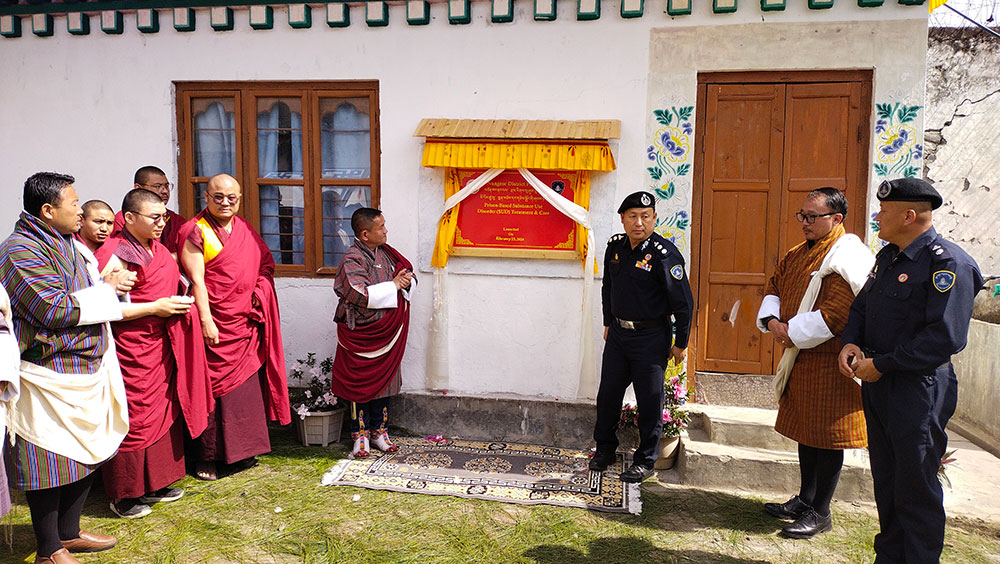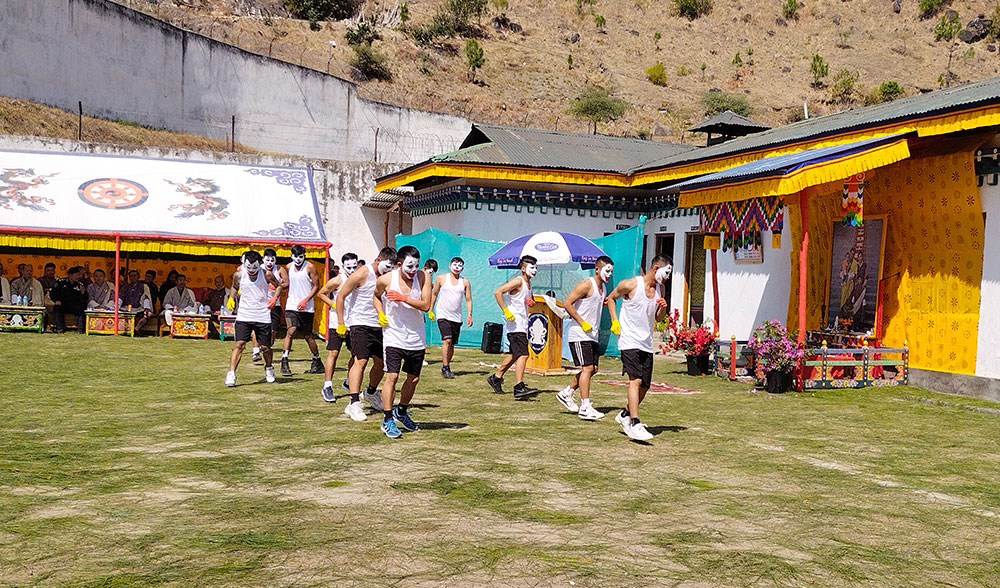…Lungzor inmates begin treatment programme
Neten Dorji
Sonam, a resident of Paro, faces the challenge of unemployment in his village, where job opportunities are scarce.
To secure a reliable source of income for his family, he resorted to selling contolled substances, an act that led to his arrest alongside a friend. As a consequence, Sonam found himself sentenced to five years in prison for engaging in illicit trade.
During his incarceration, Sonam’s primary concern revolves around the well-being of his six-year-old son and wife. Despite his past actions, he harbors a strong desire to turn his life around, seeking the opportunity to work, earn a legitimate income, and provide for his family.

About 43 inmates will undergo substance disorder treatments
Coinciding with the birth anniversary of His Majesty The King, the PEMA Secretariat launched a pioneering initiative at the Central Prison in Lungzor, Trashigang, aiming to address Substance Use Disorder (SUD) among inmates, including Sonam and 42 others.
This programme represents a long-awaited lifeline for individuals like Sonam, offering a comprehensive approach to rehabilitation and reintegration.
The programme encompasses a 12-step guide, known for its self-help principles, as well as Sorig Zhiney and Luejong mindfulness practices, coupled with yoga sessions.
Additionally, it provides livelihood and skills training, along with robust reintegration and aftercare support.
Highlighting the significance of this initiative, Dorji Tshering from The PEMA Secretariat emphasises that 84.01 percent of inmates with SUD have never accessed professional services.
Her Majesty The Gyaltsuen, recognising SUD as a mental health issue, advocated for compassionate and holistic care, aligning it with the broader framework of public health interventions.
The program’s objectives are clear: to reduce recidivism rates among drug convicts with SUD and facilitate their seamless reintegration as productive members of society.
This becomes increasingly pertinent considering that 34.9 percent of the current prison population is incarcerated for drug-related offenses.
Sonam’s narrative underscores the transformative potential of this initiative. Despite grappling with withdrawal symptoms and addiction, he views the program as a catalyst for positive change, offering him the motivation and support needed to overcome his struggles.
Similarly, fellow inmate Sangay expresses gratitude for the opportunity afforded by the program, recognising it as a pivotal moment for self-improvement before reintegrating into society.
He acknowledges the program’s role in fostering clarity and purpose, essential for navigating life beyond the prison walls.
For Kuenga, the program ignites a sense of hope and redemption. Reflecting on past regrets, he underscores the importance of trust and familial support, sentiments echoed by many others undergoing rehabilitation.
As these individuals embrace the prospect of a second chance, law enforcement efforts continue to combat substance abuse.
The Royal Bhutan Police’s vigilance is evident in their actions, with substantial arrests made in connection with substance abuse and illicit drug trafficking.
In 2022, 1,557 individuals were apprehended, a number that surged to 3,669 in 2023.
These figures underscore the ongoing battle against substance abuse, highlighting the need for both preventive measures and rehabilitation initiatives like the one spearheaded by the PEMA Secretariat.


